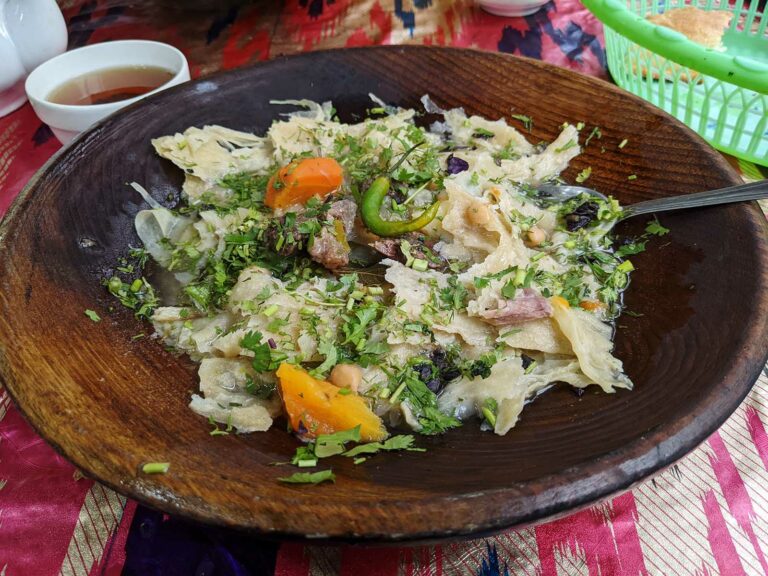Introduction: Street Food Culture in Tajikistan
Street food is an integral part of Tajikistan’s culinary culture. The country’s cuisine is rich in flavors and aromas, reflecting the diverse influences of its neighboring nations. Whether it is kebabs, samsa, lagman, or plov, tourists and locals alike find themselves drawn to the mouth-watering delicacies sold by street vendors in Tajikistan’s bustling bazaars and on its busy streets.
Food Safety Concerns in Tajikistan
Despite the popularity of street food in Tajikistan, there are valid concerns about its safety. The country has a notoriously poor sanitation record, with limited access to clean water and proper waste disposal systems. This, coupled with the lack of proper regulations and inspections, increases the risk of foodborne illnesses and other health hazards associated with consuming street food.
Factors Contributing to Unsafe Street Food
There are several factors that contribute to the unsafe nature of Tajikistan’s street food. Firstly, many street vendors do not have access to clean water, making it difficult to maintain proper hygiene and sanitation practices. Additionally, there is a lack of proper refrigeration and storage facilities, which can lead to food spoilage and contamination. Finally, the use of unregulated food additives and preservatives can further increase the risk of health hazards associated with consuming street food.
Health Risks Associated with Street Food in Tajikistan
The consumption of unsafe street food in Tajikistan can lead to several health risks. Foodborne illnesses such as typhoid fever, cholera, and hepatitis A are common, as are gastrointestinal infections and parasitic diseases. Additionally, the lack of proper labeling and disclosure of food additives and preservatives can lead to allergic reactions and other adverse health effects.
Measures to Ensure Safe Street Food in Tajikistan
To address the concerns surrounding street food safety in Tajikistan, several measures can be implemented. Firstly, there needs to be stricter regulations and inspections of street vendors to ensure that they are following proper hygiene and sanitation practices. Additionally, providing access to clean water and proper storage facilities can help prevent food spoilage and contamination. Finally, educating both street vendors and consumers about the risks associated with consuming unsafe street food can help promote safer food practices.
Conclusion: Balancing the Risks and Rewards of Eating Street Food in Tajikistan
While there are valid concerns about the safety of street food in Tajikistan, it remains an integral part of the country’s culinary culture. To balance the risks and rewards of consuming street food, it is important to exercise caution, follow proper hygiene practices, and make informed decisions about what to eat. By implementing measures to ensure safer street food practices, Tajikistan can continue to celebrate its vibrant culinary traditions while protecting the health of its citizens and visitors.

